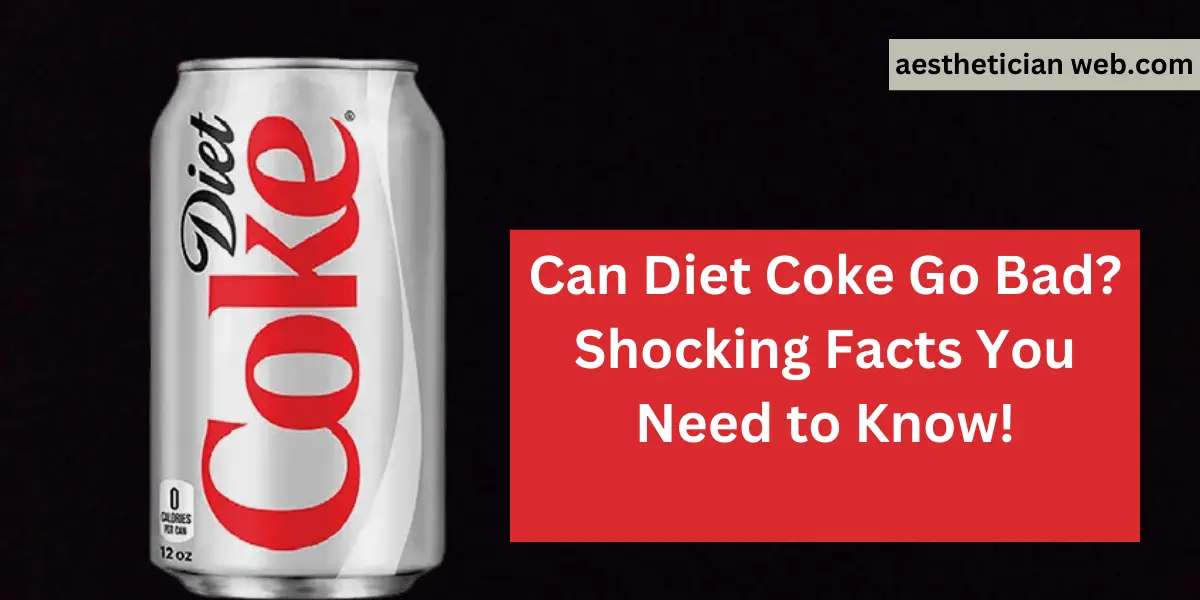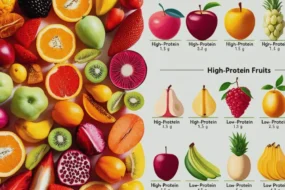
Diet Coke is a favorite choice for those who love soda but want a sugar-free option. But what happens when that can or bottle sits in your pantry for months—or even years? Can Diet Coke go bad?
Many people wonder if it’s safe to drink after the expiration date or if it loses its taste over time. The good news? Diet Coke doesn’t spoil like milk, but it can go flat and lose its refreshing fizz.
In this guide, we’ll explore Diet Coke’s shelf life, expiration, and storage tips to help you enjoy it at its best!
Can Diet Coke Go Bad?
Diet Coke doesn’t technically “go bad” but it loses flavor and fizz over time. It’s safe to drink past the expiration date, though its taste may not be as fresh.
How Long Does Diet Coke Last?
Many people wonder, “Does Diet Coke expire?” The answer is no—it doesn’t spoil like milk, but it does lose quality over time. Unopened Diet Coke stays fresh for 6–9 months past the best-by date, while opened Diet Coke goes flat within 1–3 days. Factors like temperature, light, and storage conditions affect its shelf life.
Soda expiration dates are about quality, not safety. If you store Diet Coke in a cool, dry place, it will stay fizzy longer—just like how apple juice in the refrigerator stays fresh for weeks. However, drinking expired Diet Coke may result in a flat taste rather than a satisfying, refreshing fizz!
Can You Still Drink Diet Coke After It Expires?
If you’ve ever found an old can and wondered, “Can you drink expired Diet Coke?” the answer is yes—it’s usually safe. Diet Coke doesn’t expire in a way that makes it dangerous, but it can lose carbonation and flavor over time.
Drinking expired soda won’t make you sick unless the packaging is damaged or improperly stored. Unopened Diet Coke that’s past its expiration date may taste flat or slightly off, but it’s not harmful—much like how dark chocolate with gestational diabetes can be enjoyed in moderation without significant risks.
If you want the best taste, check for signs of spoilage, like loss of fizz, a weird taste, or a metallic aftertaste before drinking!
How to Tell If Diet Coke Has Gone Bad
Wondering how to tell if Diet Coke has gone bad? The easiest way is to check for signs of spoilage. If your expired Diet Coke has no carbonation, it’s likely past its prime. A flat soda with no fizz won’t be harmful, but it won’t taste as good.
Look for color changes—if it appears murky, avoid drinking it. A metallic or off taste can also indicate that Diet Coke has degraded over time. While Diet Coke expiration dates are about quality, not safety, if it smells strange or the can is bloated, it’s best to toss it!
Does Expired Diet Coke Have Any Health Risks?
Expired Diet Coke is generally safe to drink, but it might not taste great. The best-by date indicates quality rather than safety. While bacterial growth is unlikely due to its acidity, the soda can lose carbonation and develop a bitter or metallic taste.
In rare cases, drinking old Diet Coke might cause mild stomach discomfort, but it’s not harmful. The aspartame in Diet Coke may break down over time, but it’s still safe to consume. Always check for cloudiness or off flavors before drinking. When in doubt, toss it out!
Best Ways to Store Diet Coke to Keep It Fresh
Store unopened Diet Coke in a cool, dry place, away from sunlight and heat.
- After opening, refrigerate it to maintain carbonation and flavor.
- Avoid freezing—it can cause the container to burst or the soda to lose its fizz.
- Keep it away from high temperatures (e.g., hot cars or stoves) to prevent flavor degradation.
- Proper storage helps Diet Coke stay fresh for months past the best-by date.
How Temperature & Packaging Affect Diet Coke’s Quality
Diet Coke’s quality depends on temperature and packaging. Cans are better than plastic bottles for long-term storage because they block light and air, keeping the soda fizzy. Glass bottles also work well but are less common.
High temperatures, like those in a hot car, can cause Diet Coke to lose carbonation and develop a flat or bitter taste. In hot climates, soda degrades faster, so always store it in a cool place.
Avoid exposing Diet Coke to direct sunlight or heat sources, as they speed up chemical breakdown. Proper storage ensures your Diet Coke stays fresh and tasty.
Weird & Lesser-Known Facts About Diet Coke Shelf Life
Did you know expired Diet Coke doesn’t lose caffeine? The caffeine stays, but the flavor might fade. If left in a hot car, the can could explode, or the soda might taste flat. Surprisingly, astronauts enjoy Diet Coke in space using special containers to keep it fizzy in zero gravity!
Freezing Diet Coke is a bad idea—it can burst the container and ruin the texture. These quirky facts show how Diet Coke’s shelf life is affected by unique conditions.
FAQ’s
Q: Why Does Diet Coke Taste Bad Sometimes?
The flavor of Diet Coke can change if exposed to warm places like a garage or hot storeroom, causing the aspartame to break down faster, especially since it has a half-life of about 300 days at a pH of 4. Cans can also impact taste over time, especially if the drink’s acidity reacts with the metallic surface, making it lose its crisp and refreshing feel.
Q: How Long Can You Keep Diet Coke?
If properly stored and unopened, diet soft drinks can keep their best quality for about 3-6 months after the date on the package when kept at room temperature. They usually remain safe to drink even after that period, though the taste may change slightly over time.
Q: Is Diet Coke Actually 0 Calories?
A 12-ounce can of Diet Coke has zero calories, sugar, fat, or protein, with just 40 mg of sodium. While it uses artificial sweeteners to stay sugar-free, not all sodas are completely low in calories; some combine sweetener with a bit of sugar for flavor.
Conclusion
In short, Diet Coke doesn’t truly “expire” but loses its fizz and flavor over time. Drinking it past the best-by date is generally safe, though it might taste flat or off. Always check for cloudiness, odd smells, or bitter tastes before drinking.
To keep it fresh, store unopened cans in a cool, dry place and refrigerate them after opening. Avoid heat and freezing, as they ruin the quality. Now that you know the facts, enjoy your Diet Coke worry-free—just store it right!
I’m Ayesha Zahid, a certified Nutritionist and Dietitian with over 3 years of hands-on experience helping individuals and families improve their health through nutrition.



